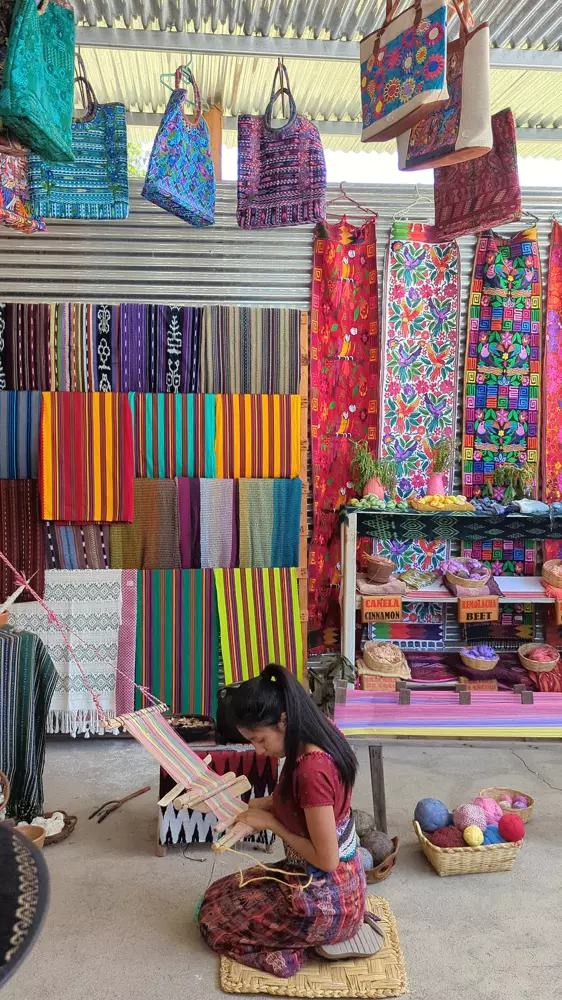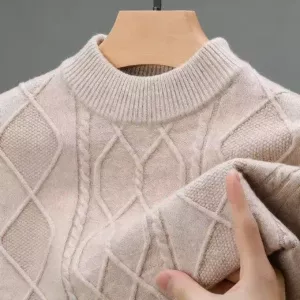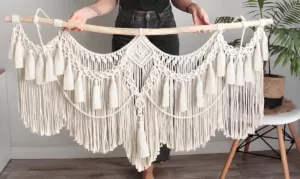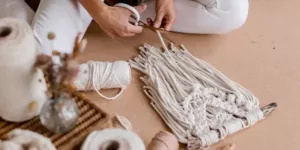The fashion world is experiencing a sustainable revolution, and vibrant Guatemalan handwoven bags are emerging as a major trend. These bags marry eye-catching indigenous patterns with ethical production, appealing to consumers who value both style and conscience. In markets from New York to Tokyo, shoppers increasingly seek accessories that tell a story. Handwoven Guatemalan bags – crafted on portable backstrap looms by Maya artisans – fit this ethos perfectly. They offer one-of-a-kind designs rooted in centuries of heritage, while also aligning with the slow-fashion movement’s emphasis on quality, transparency, and social impact.
A Tapestry of Tradition: Guatemala’s Rich Weaving Heritage
Guatemala’s indigenous weavers have perfected the art of textile weaving for generations. Local markets overflow with colorful fabrics and bags that carry the motifs of Maya culture, history, and identity. Each region in Guatemala has its own traditional traje típico (folk costume) style – there are more than 800 distinct weaving patterns and techniques across the country. Artisans often use backstrap looms – portable wooden looms tied to a weaver’s waist – to create detailed designs. They spin local cotton yarn and dye it with natural plants (flowers, bark, beetroot, etc.) to achieve vibrant, long-lasting colors. The resulting textiles are living stories: the colors, symbols and geometry in a bag’s fabric can signify an artisan’s community and heritage. By carrying a handwoven Guatemalan bag, a consumer literally carries centuries of tradition and cultural memory.
Artisanal Trend: Sustainable Fashion’s New Frontier
Global fashion trends show a clear shift toward artisanal and eco-conscious products. Consumers are demanding more authenticity and ethics in their purchases. In a recent survey spanning 17 international markets, over half of shoppers said they would pay extra for sustainably-made clothing and accessories. In fact, about 26% of consumers are willing to pay up to 10% more for sustainable pieces. In the United States, nearly 70% of shoppers say they will pay a premium for eco-friendly items. Younger buyers are even more focused on sustainability: a report found 62% of Gen Z prefer to buy from sustainable brands and 73% are willing to pay more for eco-friendly products.
Handwoven bags from Guatemala are perfectly aligned with these trends. They tick the boxes of authentic craftsmanship, eco-friendly materials, and fair production, which discerning consumers now seek. In fact, the broader ethical fashion market is booming – it’s expected to grow at ~6.5% annually, reaching an $11.8 billion industry by 2030. Social media and influencers are also fueling demand for “slow fashion” and artisanal items: unique handcrafted bags fit right in with the popular boho and heritage-chic looks. As major fashion weeks and retailers highlight sustainable lines, the spotlight on Latin American crafts is growing. A generation that values experience and meaning in products will find Guatemalan handbags a vibrant, soulful choice.
Ethical Production & Fair Trade in Every Stitch
One of the key appeals of Guatemalan handwoven bags is their ethical, equitable production. Many of these bags are made by women’s cooperatives or family-run workshops, where fair trade principles are honored. That means guaranteed fair wages, safe working conditions, and profits staying within indigenous communities. In Guatemala’s countryside, weaving is more than a hobby – it’s a main pillar of the local economy and a vital source of income for rural women. Supporting these artisans directly (through co-ops or fair-trade supply chains) empowers them financially and culturally.
- Fair Wages & Community Support: Producers typically receive prices that sustain their families, not exploitative factory wages. Consumers can be assured they’re not inadvertently supporting sweatshops.
- Preservation of Craft: By buying these bags, shoppers help keep the weaving tradition alive. Each purchase contributes to cultural continuity – younger women learn the craft knowing there is market demand. The artisans themselves see their work as “resistance against oblivion” in preserving identity.
- Small-Scale, Low-Impact Production: Handwoven bags are typically made in small batches. Artisans work slowly on manual looms, which is the opposite of mass-production lines. This “slow fashion” approach means less waste and more thoughtful use of materials. There are no huge factories full of supplies; often only needed fiber is dyed and woven.
In short, handwoven Guatemalan bags embody ethical fashion. They come from transparent supply chains rooted in respect for people and place, meeting the criteria modern consumers demand from sustainable brands.
Slow Fashion Principles: Quality Over Quantity
Handwoven bags exemplify the slow-fashion philosophy of “buy less, buy better.” They are built to last. Each stitch is made with care and skill, and the result is a durable item that can often be used for years or even a lifetime. This contrasts sharply with the disposable nature of fast-fashion accessories, which may fray or wear out after a few uses. Because of their workmanship, Guatemalan bags don’t just survive regular use – their quality often improves with age.
Key slow-fashion attributes of these bags include:
- Timeless Design: Traditional patterns and high-quality textiles resist fleeting trends. A classic woven tote will stay stylish across seasons, so the owner doesn’t feel the need to replace it yearly.
- Minimal Waste: Artisans commonly repurpose leftover threads or fabric pieces into smaller pouches or decorations. Nothing is wasted – an ethos ingrained in many indigenous crafts.
- Low Volume: Each bag is custom-made; there’s no mass surplus of identical bags piling up. This means fewer unsold goods and less waste burned or discarded.
Overall, choosing a Guatemalan handwoven bag means investing in craftsmanship and longevity. It’s the antithesis of the one-week wonder purse from a fast-fashion store.
Environmental Benefits: Handcrafted vs. Mass-Produced
Choosing a handwoven Guatemalan bag can significantly shrink the environmental footprint of one’s style. The conventional apparel and accessories industry is shockingly wasteful: it generates roughly 10% of global carbon emissions – as much as the entire European Union – and 85% of textiles end up in landfills each year. By contrast, handwoven accessories bypass much of this waste and pollution.
Some environmental advantages include:
- Natural Materials: Most Guatemalan bags are made from natural, renewable fibers – cotton, wool, sisal, or jute – often grown organically or with traditional methods. Unlike synthetic polyester or PVC, these materials are biodegradable. For example, jute (used in many Guatemalan totes) requires little water and no pesticides to grow, and even captures more CO₂ than a mature tree during its growth. When a cotton or wool bag finally wears out, its fibers can return to the earth harmlessly.
- Low Carbon Footprint: Handcrafted production consumes far less energy than factory production. There are no energy-guzzling machines or long-haul shipments for each bag – many materials are sourced locally and woven on-site. This means lower transport emissions and fewer fossil fuels burned.
- Durability & Reuse: Because these bags last longer, they reduce the rate of replacement. A sturdy woven tote might be used daily for years, whereas cheap fast-fashion bags may only survive a few months. Long use means fewer bags manufactured overall, saving resources.
- Reducing Plastic Use: Handwoven bags often serve as replacements for disposable plastic or low-quality fabric bags. Every time someone opts for a reusable Guatemalan tote instead of a plastic one, that decision prevents pollution (plastic bags can take centuries to decompose).
For context, the average American discards about 82 pounds of textile waste annually. In contrast, a well-made artisan bag can reduce a person’s disposable waste drastically. By choosing the handmade option, consumers directly counteract the staggering waste stream of fast fashion.
Consumer Demand: Shifting Towards Artisanal & Eco-Conscious Goods
The rise of handcrafted accessories isn’t just a niche notion – it’s a clear consumer trend. Beyond paid surveys, market observations confirm it. Specialty shops and online platforms report strong sales of artisanal bags and ethnic accessories. Fashion influencers often feature stories about “bags with a cause,” highlighting how they support communities and the planet.
- Millennial & Gen Z Values: Younger consumers prioritize meaningful purchases. They see fashion not just as wardrobe items, but as statements of personal values. Handwoven bags appeal as an avenue to “vote with their wallet” for cultural diversity and sustainable practices.
- Social Media Impact: Instagram and Pinterest are filled with colorful Guatemalan textiles, triggering global interest. Searches for “Mayan tote bag” or “handwoven clutch” are surging as people discover the uniqueness of indigenous designs.
- Fair-Trade Movement: Organizations that certify fair trade and ethical products frequently highlight Guatemalan weavers. When shoppers see the FAFT (Fair Trade Federation) or WFTO (World Fair Trade Organization) badges on a handwoven bag, it builds trust and demand.
- Tourism & Gift Markets: Travelers who visit Guatemala often return with handwoven souvenirs. Over time, these bags have reached mainstream markets far from Central America, increasing visibility and word-of-mouth.
In combination, these factors suggest the market for Guatemalan handwoven bags is not just a passing fad. It is being driven by a broad shift towards conscious consumerism, where buyers prefer artisanal and ethical products over generic mass-market goods.
Embracing Cultural Heritage with Every Carry
Handwoven Guatemalan bags stand out in a crowded accessory market because each piece is steeped in culture. The moment you pick up one of these bags, you carry a vivid piece of Maya history and Guatemalan identity. This resonance with local heritage is unique: no two bags are identical, and the designs have personal stories.
Moreover, wearing or using such a bag publicly signals one’s values – of craftsmanship, respect for tradition, and environmental awareness. It’s a statement that true style doesn’t have to come at the planet’s expense. As the fashion industry evolves, products that are ethical, artisanal, and culturally rich will only grow in appeal.
Guatemalan handwoven bags are poised to be the next big thing in sustainable fashion by combining timeless beauty with modern values. For people who care about local culture and a greener planet, choosing one of these bags is an easy decision. It supports fair labor, reduces ecological impact, and celebrates the art of slow, mindful creation. In an era of fast fashion’s excess, these vibrant bags remind us that the future of style is slow, ethical, and stitched with stories.









